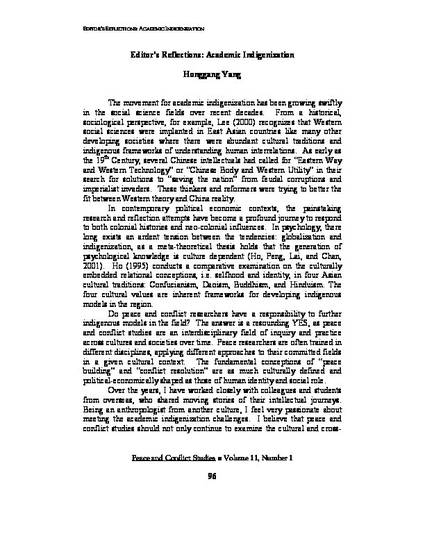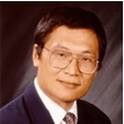
Excerpt
The movement for academic indigenization has been growing swiftly in the social science fields over recent decades. From a historical, sociological perspective, for example, Lee (2000) recognizes that Western social sciences were implanted in East Asian countries like many other developing societies where there were abundant cultural traditions and indigenous frameworks of understanding human interrelations. As early as the 19th Century, several Chinese intellectuals had called for “Eastern Way and Western Technology” or “Chinese Body and Western Utility” in their search for solutions to “saving the nation” from feudal corruptions and imperialist invaders. These thinkers and reformers were trying to better the fit between Western theory and China reality.
- academic indigenization,
- China reality,
- East Asian countries,
- globalization,
- social science fields,
- Western theory
Available at: http://works.bepress.com/honggang-yang/3/
